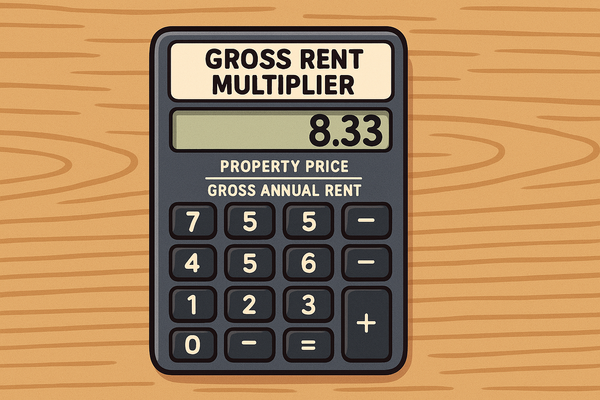Rhode Island Squatters Rights Guide: Understanding Adverse Possession Laws
Under Rhode Island General Laws § 34-7-1, someone who occupies another's property without permission for a continuous 10-year period can potentially gain legal ownership through adverse possession.

From the slow, gradual takeover of a neighbor's property resulting in a successful adverse possession claim in Simpson v. Castro, to the violent, drug-fueled disaster in the Silver Lake Siege squatter takeover, Rhode Island property owners face a spectrum of risks from unauthorized occupants.
Understanding the state's specific 10-year adverse possession requirements, eviction procedures, and prevention strategies is essential for landlords, homeowners, and investors alike.
This comprehensive guide examines Rhode Island's unique legal framework governing squatters' rights and provides practical advice for protecting your real estate investment from both long-term adverse possession claims and immediate squatter disasters.
Introduction to Squatters' Rights in Rhode Island
Definition of Squatters vs. Trespassers in Rhode Island
In Rhode Island, a trespasser enters property without permission for a brief period and can typically be removed immediately by police, while a squatter establishes unauthorized residency and generally requires formal eviction proceedings for removal. This legal distinction is crucial for property owners to understand, as it determines whether a simple police call will suffice or if court proceedings are necessary for removing unwanted occupants.
Basic Overview of Adverse Possession in Rhode Island
Under Rhode Island General Laws § 34-7-1, someone who occupies another's property without permission for a continuous 10-year period can potentially gain legal ownership through adverse possession. The occupation must satisfy the "OCEAN" criteria (Open, Continuous, Exclusive, Adverse/Hostile, and Notorious), proven by "clear and convincing evidence." Unlike some states, Rhode Island doesn't explicitly require property tax payment or color of title for adverse possession claims, though these factors can strengthen a claim.
Why Property Owners Should Understand These Laws
Property owners must understand Rhode Island's squatters' rights laws to protect their investments from both immediate damages and potential loss of ownership after the 10-year statutory period. Attempting "self-help" eviction methods can result in legal liability, even when dealing with unauthorized occupants. As demonstrated by the Silver Lake case in Providence, squatters can cause significant property destruction and community harm long before any adverse possession claim might materialize, making prevention and proper legal response essential.
Historical Purpose of Adverse Possession Laws
Adverse possession laws, including Rhode Island's, originated in English common law to serve several purposes: encouraging productive use of land rather than abandonment, resolving boundary disputes and unclear titles before modern property recording systems, aligning legal ownership with community expectations when someone had openly treated property as their own for years, and providing a mechanism for transferring ownership of effectively abandoned property. These laws continue to balance protecting legitimate ownership rights against preventing property abandonment and disuse.
Squatter Snippet: Real Cases from Rhode Island
The Pool House Squatter
In August 2013, a disturbing incident made headlines when John M. Dubis, a 49-year-old Rhode Island resident, was discovered squatting in Jennifer Lopez's luxury Hamptons vacation home. Dubis had been living in Lopez's pool house for approximately one week despite an existing Order of Protection against him.
Upon discovery, he was charged with multiple offenses including second-degree burglary and first-degree criminal contempt. This case highlights how squatters can sometimes be dangerous individuals with concerning motives beyond simply seeking shelter.
The 13 Month Terror
Even more disturbing was the 2021 case in Providence's Silver Lake neighborhood. Approximately 20 squatters took over a foreclosed four-unit multifamily home at 66 Terrace Avenue, resulting in 13 months of terror for the community.
Neighbors documented regular furniture burning, violent brawls, constant noise until early morning hours, and most disturbingly, the death of a woman inside the property and the killing of a neighbor's dog by the squatters' dogs. Despite residents' repeated pleas for help, their concerns went largely unanswered by local officials.
This shocking case demonstrates why Rhode Island property owners must be vigilant about vacant properties, even though the state's adverse possession laws require 10 years of continuous occupation.
Key Timeline: Statutory Period in Rhode Island
- Required occupation period: 10 years in Rhode Island
- Continuous possession requirement: Occupation without significant gaps
- Comparison with neighboring states:
- Timeline exceptions:
- Military service
- Incarceration
- Legal incompetence/disability
Adverse Possession Timeline Comparison
| State | Required Years | Special Conditions |
|---|---|---|
| Rhode Island | 10 years | No tax payment or color of title required |
| Connecticut | 15 years | Various requirements |
| Massachusetts | 20 years | Various requirements |
| New York | 10 years | Various requirements |
Quick Guide for Property Owners
Rhode Island's squatters' rights laws present unique challenges for property owners. With a relatively simplified adverse possession system requiring only 10 years of occupation and fewer technical prerequisites than many other states, Rhode Island property owners must be particularly vigilant.
Unlike some states, Rhode Island does not explicitly require payment of property taxes or color of title for adverse possession claims, potentially making it easier for squatters to establish claims compared to states with more stringent requirements.
The Silver Lake siege in Providence serves as a sobering reminder that even long before the 10-year statutory period expires, squatter situations can cause devastating property damage, threaten neighborhood safety, and significantly devalue surrounding properties. Rhode Island property owners should take these risks seriously and implement preventative measures.
- Know your timeline: Squatters can claim rights after 10 years of continuous occupation
- Documentation matters: Keep property records, tax receipts, and inspection logs
- Regular monitoring required: Vacant properties are most vulnerable
- Legal obligation: Self-help eviction methods are illegal in Rhode Island
- Act quickly: The longer squatters remain, the stronger their potential claim
- Proper notices: Follow legal procedures when removing unauthorized occupants
Prevention: Protecting Your Property
Rhode Island's adverse possession laws emphasize the importance of property owners demonstrating active interest in their property. Courts examine whether the true owner has asserted their rights during the statutory period, and regular monitoring is one of the most effective ways to demonstrate this interest. The Silver Lake case shows that abandoned or foreclosed properties are particularly vulnerable to squatter occupation.
For Rhode Island property owners, prevention strategies should focus on regular monitoring, clear documentation of ownership activities, and prompt legal action against any unauthorized occupants. While Rhode Island courts don't specifically require tax payments for adverse possession claims, maintaining tax and utility records provides strong evidence of ownership interest.
- Regular inspections:
- Visit property at least monthly
- Document each visit with photos/notes
- Effective security measures:
- Secure all entry points
- Consider alarm systems
- Install motion-activated lighting
- Clear signage:
- Post "No Trespassing" signs visibly
- Mark property boundaries clearly
- Property management options:
- Hire professional management for vacant properties
- Consider rental options for long-term vacancies
- Documentation practices:
- Keep tax payment records
- Maintain utility connections
- Take dated photographs regularly
Property Risk Assessment Matrix
| Property Type | Risk Level | Recommended Prevention | Estimated Cost |
|---|---|---|---|
| Vacant Land | High | Regular inspections, clear boundary markers, "No Trespassing" signs | $-$$ |
| Abandoned Building | Very High | Security systems, property management, regular police reports for trespassers | $$$-$$$$ |
| Seasonal Property | Medium | Security systems, property management, neighbor monitoring | $$-$$$ |
| Investment Property | Medium | Tenant screening, property management, regular inspections | $$-$$$ |
Removing Squatters: Step-by-Step Process
Rhode Island law requires property owners to follow proper legal procedures when evicting squatters. While trespassers can technically be removed immediately by police, once someone has established residency (even illegally), they typically must be removed through formal eviction proceedings.
Self-help measures like changing locks, removing possessions, or shutting off utilities can result in legal liability for the property owner.
The judicial eviction process in Rhode Island must be followed carefully to ensure legal compliance and avoid potential countersuits from squatters. Property owners should consult with a qualified Rhode Island real estate attorney to navigate these complex legal matters.
- Document the situation:
- Take photos/video of occupation
- Gather ownership documents
- Issue proper written notice to vacate
- File appropriate legal complaint:
- Eviction action in Rhode Island
- Include all required documentation
- Attend court hearing
- If successful, obtain order of eviction
- Sheriff enforces removal, not property owner
- What NOT to do:
- Do not change locks yourself
- Do not shut off utilities
- Do not remove squatter's belongings
- Do not threaten or intimidate
- Do not use physical force
- Timeline expectations:
- Notice period: 5 days (using tenant notice as model)
- Court processing: 2-4 weeks
- Eviction enforcement: 1-2 weeks after judgment
Eviction Process Timeline
The eviction process in Rhode Island follows specific procedural requirements established in the state's civil procedure codes. For proper removal of squatters, property owners must adhere to these requirements, which typically include a written notice period, formal court filing, hearing, and enforcement by law enforcement officers rather than the property owner. The timeline can vary based on court schedules and any potential appeals.
[Discovery of Squatter] → [Documentation: 1-2 days] → [Notice to Vacate: 5 days] →
[Court Filing: 1 day] → [Waiting for Hearing: 2-4 weeks] → [Court Hearing: 1 day] →
[If successful, Wait for Order: 5-7 days] → [Sheriff Enforcement: 7-14 days] → [Property Returned]
Total estimated timeline: 3-8 weeks
Legal Requirements for Adverse Possession
Rhode Island courts evaluate adverse possession claims using five essential elements commonly known as the "OCEAN" criteria (Open, Continuous, Exclusive, Adverse/Hostile, Notorious). Each element must be proven by "clear and convincing evidence," which represents a high standard of proof in legal proceedings. Rhode Island's approach focuses on these core elements rather than additional technical requirements like tax payments or color of title, which are mandated in many other states.
Recent cases like Simpson v. Castro and Komarek (2024) demonstrate how Rhode Island courts apply these principles in practice. In this case, Ms. Simpson established adverse possession through maintenance activities like fertilizing lawn, planting flowers, mowing, and installing a fence over a continuous 10-year period.
By contrast, the Rhode Island Supreme Court rejected an adverse possession claim in Clark v. Buttonwoods Beach Association (2020) because the claimants failed to demonstrate exclusive possession for the required period.
- Open Possession
- Definition: Possession must be visible and apparent, not secretive or hidden
- Evidence courts look for: Obvious improvements, visible use, maintenance activities
- Example from case law: Planting and maintaining flowers, fertilizing and mowing lawn, installing a fence, hiring landscapers
- Continuous Possession
- Definition: Uninterrupted use for the full 10-year statutory period
- Ways owners can interrupt: Filing action to quiet title, filing "notice of intent to dispute," physically ousting the claimant
- Allowed exceptions: Brief seasonal absences may be permitted if consistent with normal property use
- Exclusive Possession
- Definition: Squatter must possess property as if they were the true owner, preventing others from using it
- Evidence courts accept: Erecting fences or barriers, posting "No Trespassing" signs, verbally disputing others' claims
- Example from case law: "Erecting a small fence" and "disputing claims of ownership" made by others
- Adverse/Hostile Claim
- Definition: Possession without the owner's permission
- Rhode Island's approach: Follows objective standard (no need to show ill will, just occupation without permission)
- Common misconception: "Hostile" doesn't require confrontation or animosity, just lack of permission
- Notorious Possession
- Definition: Possession so widely known it would alert a reasonable property owner
- Evidence courts accept: Visible improvements, obvious use visible to neighbors, maintenance activities
- Often evaluated alongside: The "open" requirement, as evidence frequently overlaps
Adverse Possession Requirements Matrix
| Requirement | Required in Rhode Island? | Evidence Courts Accept | Common Pitfalls |
|---|---|---|---|
| Open | Yes | Visible maintenance, improvements, structures | Hidden or concealed use |
| Continuous | Yes | Uninterrupted use for 10 years | Gaps in occupation, abandonment |
| Exclusive | Yes | Preventing others' use, fencing, barriers | Shared use with others |
| Adverse/Hostile | Yes | Use without permission | Having owner's consent |
| Notorious | Yes | Widely visible activities, known to neighbors | Discrete or secretive use |
Frequently Asked Questions
- "Can I remove squatters myself?"
- No, self-help eviction is illegal in Rhode Island
- Must follow legal eviction process
- "Do squatters have to pay property taxes?"
- Tax payment may strengthen adverse possession claim
- Not required in Rhode Island (unlike some states)
- "What's the difference between a squatter and a trespasser?"
- Trespassers: Short-term unauthorized presence
- Squatters: Ongoing occupation with potential adverse possession claim
- "Who should I contact first - police or sheriff?"
- For immediate safety concerns: Police
- For eviction enforcement: Sheriff
- "Can squatters claim abandoned property?"
- Yes, if all adverse possession requirements are met
- Abandonment may actually strengthen their claim
- "How quickly can I evict a squatter?"
- Typical timeline: 3-8 weeks
- Factors affecting timeline: court schedule, appeals, evidence quality
Decision Tree for Property Owners
Rhode Island property owners faced with unauthorized occupants must carefully assess the situation to determine the appropriate legal response. The state's laws distinguish between criminal trespass (immediate entry or brief occupation) and civil squatting situations (established residency requiring formal eviction). Rhode Island law enforcement generally treats recent unauthorized entries as trespassing matters, while longer-term occupation typically requires civil eviction proceedings.
Discovered Someone on Your Property
├── Emergency/Dangerous Situation? → Yes → Call Police
│ └── No ↓
├── Recent Entry (Less than 24 hours)? → Yes → Call Police (Trespasser)
│ └── No ↓
├── Evidence of Established Occupation? → Yes → Legal Eviction Process Required
│ └── No ↓
└── Uncertain Situation → Consult Attorney Before Taking Action
Recent Legislative Changes in Rhode Island
As of March 2025, there have been no significant legislative changes to Rhode Island's adverse possession laws in the past three years, and no pending legislation appears to be actively altering these statutes.
The foundational legal basis for adverse possession in Rhode Island remains established in the state's General Laws, specifically Rhode Island General Laws § 34-7-1, which states that when any person "shall have been for the space of ten (10) years in the uninterrupted, quiet, peaceful and actual seisin and possession of any lands, tenements or hereditaments... claiming the same as his, her or their proper, sole and rightful estate in fee simple," this possession "shall be allowed to give and make a good and rightful title."
Property owners should continue to monitor for any new legislation that may impact adverse possession or landlord-tenant law in Rhode Island, as changes to these statutes could affect their rights and responsibilities.
- Current Relevant Laws:
- Rhode Island General Laws § 34-7-1: Establishes 10-year statutory period for adverse possession
- Section 34-7 of Rhode Island General Laws: Addresses possession and propriety of lands
- Rhode Island General Laws § 34-7-6: Allows filing "notice of intent to dispute" adverse possession
- Legislative Trends:
- No significant recent changes to Rhode Island's adverse possession laws
- Property rights remain a balance between protecting ownership and preventing abandonment
State-Specific Considerations
- Color of Title in Rhode Island:
- Definition: Irregular ownership document that appears valid but contains legal defect
- Impact on statutory period: Not required in Rhode Island, but strengthens claims if present
- Documentation value: Helps establish claimant's intent to possess as owner
- Burden of proof requirements:
- Squatter must prove all OCEAN elements by "clear and convincing evidence"
- Higher standard than typical civil "preponderance of evidence" standard
- Challenging for squatters to meet, favoring legal property owners
- Tax payment considerations:
- Not required in Rhode Island (unlike some states)
- Evidence of tax payment strengthens adverse possession claims
- Document all property tax payments as evidence of ownership interest
- How Rhode Island differs from neighboring states:
- Shorter statutory period than Massachusetts (20 years)
- Simpler requirements than many states (no tax payment or color of title required)
- Focus on five core OCEAN elements rather than technical prerequisites
Rhode Island vs. Neighboring States Comparison
| Factor | Rhode Island | Massachusetts | Connecticut | New York |
|---|---|---|---|---|
| Statutory Period | 10 years | 20 years | 15 years | 10 years |
| Color of Title Impact | Not required, but helpful | Various requirements | Various requirements | Various requirements |
| Tax Payment Required | No | Various requirements | Various requirements | Various requirements |
| Special Conditions | Primarily OCEAN elements | Various requirements | Various requirements | Various requirements |
| Strictness Rating | 3/5 | 4/5 | 4/5 | 3.5/5 |
Advanced Legal Process
- Court proceedings follow Rhode Island civil procedure rules
- Evidence requires "clear and convincing" standard of proof
- Property owners can file "notice of intent to dispute" to interrupt claims
- Successful adverse possession transfers legal title without compensation
- Rhode Island courts evaluate OCEAN criteria rigorously
- Special protections may apply for legally incompetent individuals
Real-World Examples
Simpson v. Castro and Komarek (2024)
In this recent Rhode Island Superior Court case, Ms. Simpson claimed ownership of a disputed area adjacent to her property through adverse possession.
Key Facts:
- Ms. Simpson had maintained the disputed area since 2003
- She fertilized the lawn, planted flowers, mowed, and hired landscapers
- She installed a fence to keep dogs from neighboring property out
- Previous owners of the adjacent property were aware of her maintenance
- Her possession was continuous and uninterrupted from 2003 to 2013
The court found that Ms. Simpson had established all five elements of adverse possession by clear and convincing evidence, and granted her claim, making her the rightful owner of the disputed area.
Clark v. Buttonwoods Beach Association (2020)
In this case, the Rhode Island Supreme Court rejected an adverse possession claim involving waterfront property.
Key Facts:
- The Clarks purchased property in 2009, believing it included a waterfront lot
- They treated the waterfront as their own, posting "Private Property" signs
- Previous owners had also maintained portions of the property
- The Buttonwoods Beach Association (BBA) claimed ownership
The court found that no series of property owners had met the 10-year requirement for adverse possession. Various owners had recognized that the BBA and neighbors had some interest in the property, meaning the "exclusive" and "hostile" elements were not satisfied.
The Silver Lake Siege (2021-2022)
While not an adverse possession case, this shocking squatter scenario in Providence demonstrates the immediate dangers of unauthorized occupation:
Key Facts:
- Approximately 20 squatters occupied a foreclosed multifamily home
- They burned furniture in the yard, causing fires to shoot dangerously high
- Violent brawls erupted regularly, with noise continuing until early morning
- A woman's body was discovered inside the property (suspected overdose)
- The squatters' dogs attacked and killed a neighbor's dog
- Neighbors' repeated pleas for help went largely unanswered
This case shows that even long before the 10-year statutory period for adverse possession, squatter situations can cause devastating damage and community harm.
Resources
- Current Rhode Island Squatters Rights Laws:
- Rhode Island General Laws (http://webserver.rilin.state.ri.us/Statutes/)
- Rhode Island Judiciary (https://www.courts.ri.gov/)
- Rhode Island Bar Association (https://ribar.com)
- Legal Services:
Legal Disclaimer
DISCLAIMER: The information provided in this guide is for general informational purposes only and should not be construed as legal advice on any subject matter. The content contained herein does not establish an attorney-client relationship.
This guide about Rhode Island squatters' rights and adverse possession laws is intended to provide general information and should not be relied upon as legal advice. Laws and regulations regarding property rights, adverse possession, and eviction procedures vary by jurisdiction and may change over time. The information presented here may not reflect the most current legal developments or address your specific situation.
No reader should act or refrain from acting based on information in this guide without first seeking professional legal advice. Property owners dealing with squatters should consult with a qualified attorney licensed to practice in Rhode Island for advice tailored to their particular circumstances.
The authors, publishers, and distributors of this guide expressly disclaim all liability in respect to actions taken or not taken based on any or all of the contents of this document. They shall not be responsible for any errors or omissions in this information or any consequences arising from its use.
This guide is provided "as is" without warranty of any kind, either express or implied, including but not limited to implied warranties of merchantability, fitness for a particular purpose, or non-infringement.
Copyright © 2025 LandlordDoc.com. All rights reserved.





